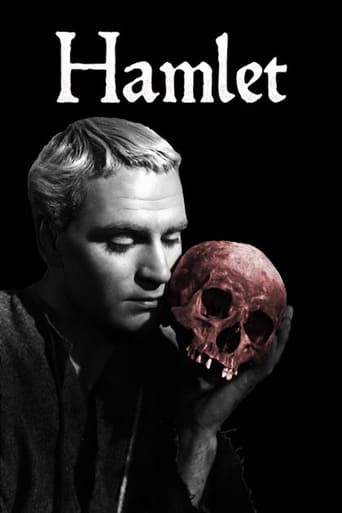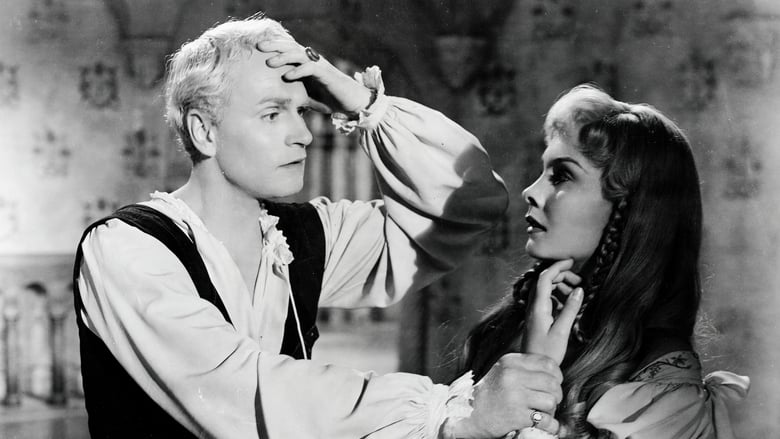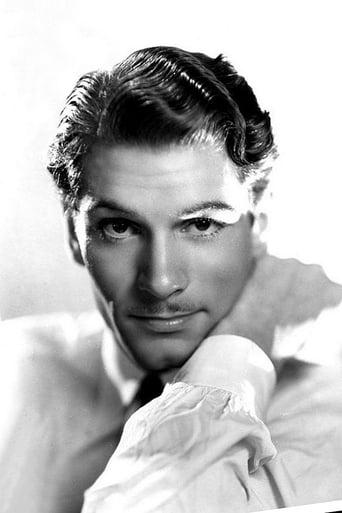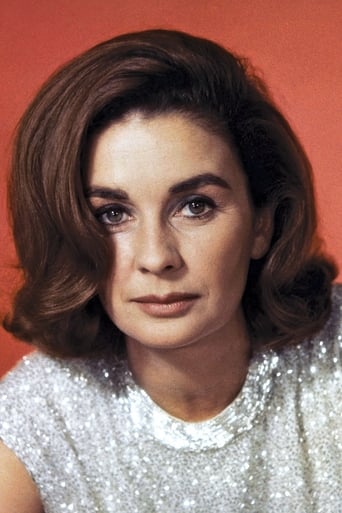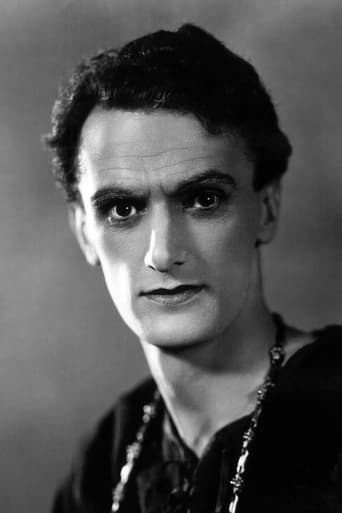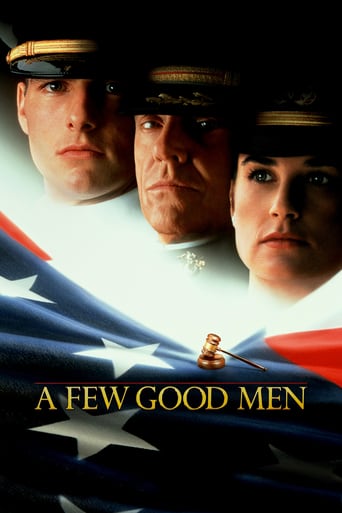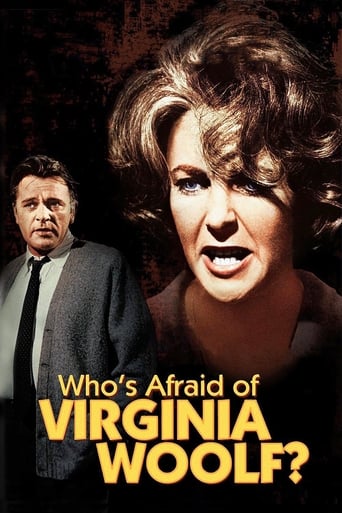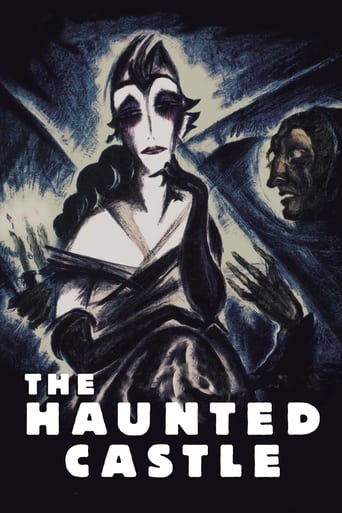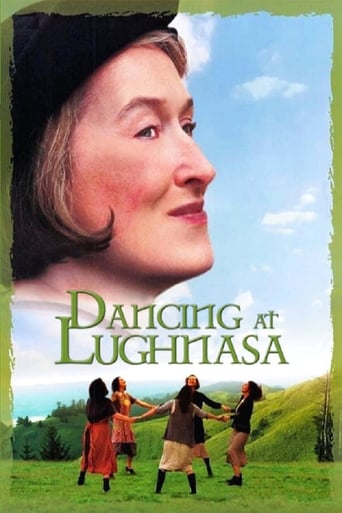Hamlet (1948)
Winner of four Academy Awards, including Best Picture and Best Actor, Sir Laurence Olivier’s Hamlet continues to be the most compelling version of Shakespeare’s beloved tragedy. Olivier is at his most inspired—both as director and as the melancholy Dane himself—as he breathes new life into the words of one of the world’s greatest dramatists.
Watch Trailer
Cast
Similar titles
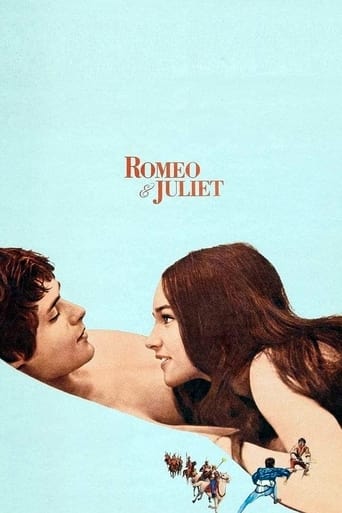
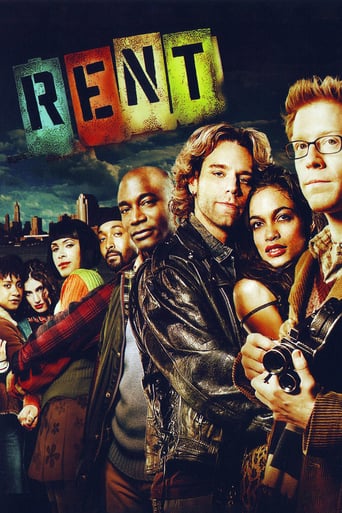
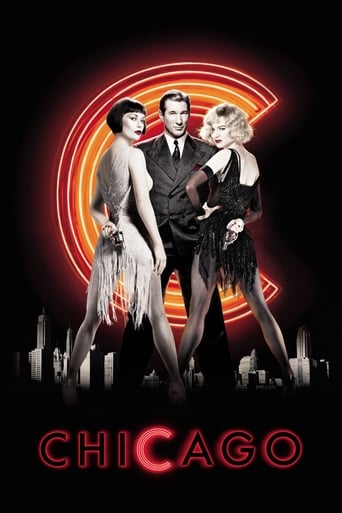
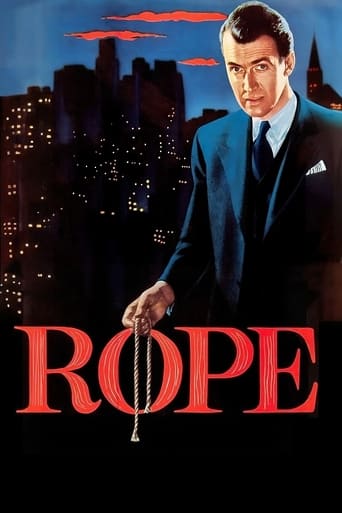
Reviews
I like the storyline of this show,it attract me so much
From my favorite movies..
Don't listen to the negative reviews
Absolutely Fantastic
Heresy as it may be for someone like me, with a Masters degree in English, to admit, I've decided that I just don't care for Shakespeare. I can appreciate his supreme place in the annals of literature, and can acknowledge that just about every aspect of modern literature owes some debt to him, but I'm fairly bored silly when trying to actually watch any of his plays on screen.This adaptation of "Hamlet" is thought to be by many one of the best, but I found it to be a bit of a plodding snoozer. Laurence Olivier directed himself to a Best Actor Oscar for his performance as the brooding Dane, and he brought a satisfyingly stark and chilly look to the film that fits its tone and themes, but despite his immense efforts to prove otherwise, the film more than anything proves that Shakespeare belongs more on stage than it does on screen. The suspension of disbelief and the acceptance of certain plot contrivances that work fine in the illusion of theater can't survive under the minute scrutiny of the movie camera. I don't know that a newbie to "Hamlet" would be able to make any sense of the play or the main character's motivations, let alone his dilemma, from this version."Hamlet" ushered in a period of backlash against foreign influences in Hollywood when it won the Best Picture Oscar in 1948, piquing those in the industry who felt only home-grown products should win the big prize. It also won Oscars for its black and white art direction and black and white costume design in the first year that the latter category existed. Olivier was not able to turn his Best Director nomination into a win (no one has ever won both Best Director and Best Actor for the same film), nor were Best Supporting Actress nominees Jean Simmons (as the doomed Ophelia) or William Walton, who provided the film its score.Grade: B
Prince Hamlet (Laurence Olivier) struggles over whether or not he should kill his uncle, whom he suspects has murdered his father, the former king."Hamlet" was the first British film to win the Academy Award for Best Picture. It is also the first sound film of the play in English. That seems pretty hard to believe, but it is true. Stranger still, the first sound version was actually in Urdu.Olivier excised the "political" elements of the play (entirely cutting Fortinbras, Rosencrantz and Guildenstern) in favor of an intensely psychological performance, partly to save time. Olivier himself stated that "one great whacking cut had to be made", and the cut he chose to make was the omission of Rosencrantz and Guildenstern. This was not much criticized at first, but later critics did take more notice of it, especially after shorter productions of Hamlet that did not leave out these characters were presented on television.Olivier also played up the Oedipal overtones of the play by having Hamlet kiss his mother lovingly on the lips several times during the film. Film scholar Jack Jorgens has commented that "Hamlet's scenes with the Queen in her low-cut gowns are virtually love scenes." In contrast, Jean Simmons' Ophelia is destroyed by Hamlet's treatment of her in the nunnery scene.Changes or not, this is the "Hamlet" that all others should be compared to. Whether longer or shorter, political or not, this was the one that broke ground. And for that, it is a valuable contribution to film history.
The only major flaw this movie has is how condensed it is. Subplots, characters, and lines are eliminated, to the point where it feels unfinished. Olivier did this for two reasons: time and more focus on Hamlet. Hamlet is Shakespeare's most complex and debated character, so Olivier condensing the movie isn't that bad. It also allows the movie more of a dark, Gothic feeling, much to Hamlet's self. But Olivier cutting out many lines, including all but the last line in the "O what a rogue and peasant slave am I" soliloquy: arguably the best soliloquy in the play, is what I didn't like. It is the most intense we see him, and it is also when he shows his main traits: sadness, anger, confusion, philosophy, wit, happiness and determination, all in the same part. It is also the play's turning point/climax (all of Shakespeare's climax's happen near the middle). Olivier including that soliloquy would has added just a couple more minutes and would have made Olivier's great performance even better. Though I have been bickering at the condensation, that is not enough to say this movie wasn't good or sucked. What makes this so good is the filming and portrayals. Sir Laurence Olivier was the greatest actor of the 20th century. Some similar actors in his time such as Gielgud, Guinness and Richardson became his greatest rivals, but none could surpass him. But on film, Olivier did crappy performances by being completely unconvincing and very robotic. This is one of those times where he would deliver a superb powerhouse performance. Plus, the delivery of the character was very plausible. Hamlet is a character that only the best can play. To do a good Hamlet, one must have strong acting and accuracy. Not just one or the other, or one outweighing the other. There is no correct way of playing Hamlet, only accuracy. The only way to attain that accuracy is by showing every kind of human emotion, all while keeping a basis for the general character (Olivier's was a man who could not make up his mind, which is the most popular and plausible generalization). Olivier's accuracy may very well be how Shakespeare intended on writing Hamlet. His strong accuracy and dazzling performance makes this one of the best portrayals in film history. If you have not studied Hamlet, you won't think so. Other than Olivier, everyone else's portrayals and accuracy were spot on too. Even Gertrude (who was noticeably 10 years younger than Oliver) was great. Kenneth Branagh's 1996 version disgraced all characters except for Horatio. What makes this a great piece of film are the camera tricks and special effects. Although Olivier did not like doing movies, he admired filmmakers and wanted to do an artful movie. For a movie in the 1940s, the ghost, smokes, and lighting were uncanny. His capturing of a dark Gothic feeling is so good and fits the play very well. He also incorporates many camera tricks that adding meaning and pull the viewer in. This is the only artful and skillfully crafted film about a Shakespearean play.
. . . or is it like they never even existed, akin to James Stewart's "George Bailey" character in the middle portion of IT'S A WOKNDERFUL LIFE? Director\star Laurence Olivier completely edited out the R&G boys (not to mention Fortinbras) from his variation of Shakespeare's play, to give himself more time on-screen. Olivier's HAMLET becomes a pirate fighter (like Captain Bligh); an international hostage (like Richard the Lionheart); a champion fencer (like Errol Flynn), and a take-down tackling avenger from on high (like Spiderman). No doubt Larry thought he was entitled to take any liberties with this story he fancied, conflating himself with the title character, since he'd had his own private version of mad Ophelia (wife Vivien Leigh). Religious faith, on the other hand, is Hamlet Junior's undoing, as he refrains from killing serial poisoner King Claudius in the castle chapel because the latter is mumbling a combination prayer\regicide\incest confession for doing in Hamlet Senior in order to mount the throne and Queen Gertrude himself. Junior abstains from the revenge mandated by Senior's Ghost (who sounds a lot like Laurence Olivier, too) since the younger Hamlet fears this would send the ruthless killer straight to Heaven!! At least Hamlet made up his mind in recommending a nunnery (as mental institutions were referred to back then) for Ophelia. Alas, she drowned herself and got buried in the unhallowed grave of Yorick, a long-dead court jester (Olivier does not repeat the Pope joke that put Yorick into unholy ground 23 years earlier). Though Hamlet offers to eat a crocodile with Ophelia's peeved brother, Laertes, the latter stabs him in the back. After everyone dies, the rest is alleged to be silence by Olivier (though he apparently forgot to mention that to the Motion Picture Academy Oscar voters).
